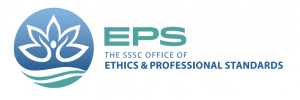
Power and Vulnerability in the Student-Teacher Relationship
October 2021
Humans are typically very willing to give away their power if they think a person can help them. This dynamic creates an imbalance of power within the relationship. This imbalance is magnified in a relationship with a yoga teacher, therapist, or spiritual leader because of the greater degree of trust involved and the accompanying desires to both please and to not displease the teacher or leader. A yoga teacher is not inherently more powerful than others. Rather, the students’ trust and their desire for a perceived benefit – their vulnerability – give the teacher more power and influence in the relationship. There is nothing wrong with this; we see healthy power imbalances literally everywhere and in all types of relationships.
The problem is when a teacher exploits that power imbalance for their personal gain, whether consciously or not. Such exploitation can cause harm to students. Often the student feels so “special” by the attention or preference the teacher has shown for them, that they do not realize the harm (having been exploited sexually, financially, through “seva”, etc.) until later, through the trauma of breakup. But the harm is real and can manifest in a myriad of ways: Shame, grief, loss of trust, inability to form healthy relationships, guilt, fear of intimacy, that haunt and harm for years, if not a lifetime.
What kind of people are victims? Who can be a perpetrator?
Anyone can be subject to exploitation and abuse. The perpetrator is typically someone the person knows and trusts. Perpetrators of sexual abuse/exploitation and harassment are overwhelmingly male with mostly female subjects, but anyone of any age or gender can be a victim. “Wanderer” perpetrators are not conscious that what they are doing is inappropriate. Others are predatory, and consciously select, groom, and prey upon their targets. Both types of exploitation and abuse are wrong.
Types of abuse include sexual, financial, and using a student’s “seva” (i.e., uncompensated work) for personal gain. While the percentage of teachers who misuse power with their students is very small, every teacher has circumstances wherein there is opportunity to exploit their students’ vulnerability. Count yourself out!
How do we manage the relationship and keep things professional?
- Follow the KRI Code of Ethics and Professional Conduct.
- Remember, the students’ elevation comes first. Students’ wellbeing must always be primary.
- Maintain professional boundaries. Some teacher boundaries are fixed, such as not physically adjusting postures and avoiding dual relationships (e.g., being both a person’s teacher and their romantic partner). Sometimes it’s natural to cross a boundary, e.g., consoling a student, visiting a student’s home to support a fundraising event, or going out for casual dining with a group of students. In every case remain personally impersonal. Where you may be crossing over into the student’s personal space (whether physical, emotional, social, or otherwise), ALWAYS first ask yourself: For what purpose? For whose interest? Is there any potential for harm to the student? A violation of boundaries is when a crossing is unwelcomed or causes harm.
- Be sensitive to cultural differences and adjust boundaries as needed. What is acceptable in one culture, may not be elsewhere, and vice versa. A hug or handshake is fine in America, but not in China. The warmth of physical affection between individuals shown in some European countries is not always welcomed in other cultures, and so forth.
Remember… if you have any question or concern about a relationship, bring these to EPS to discuss your question or how to navigate the concern.
Q&A with EPS: Send your questions regarding power imbalance situations, or other issues you’d like to see addressed in future articles, to: [email protected]. Confidentiality maintained.

Ask EPS… If you have a question or topic you would like EPS to talk about, let us know!
You can send us an email at [email protected]
Click here to visit EPS Official Website

KRI is a non-profit organization that holds the teachings of Yogi Bhajan and provides accessible and relevant resources to teachers and students of Kundalini Yoga.
More Related Blogs